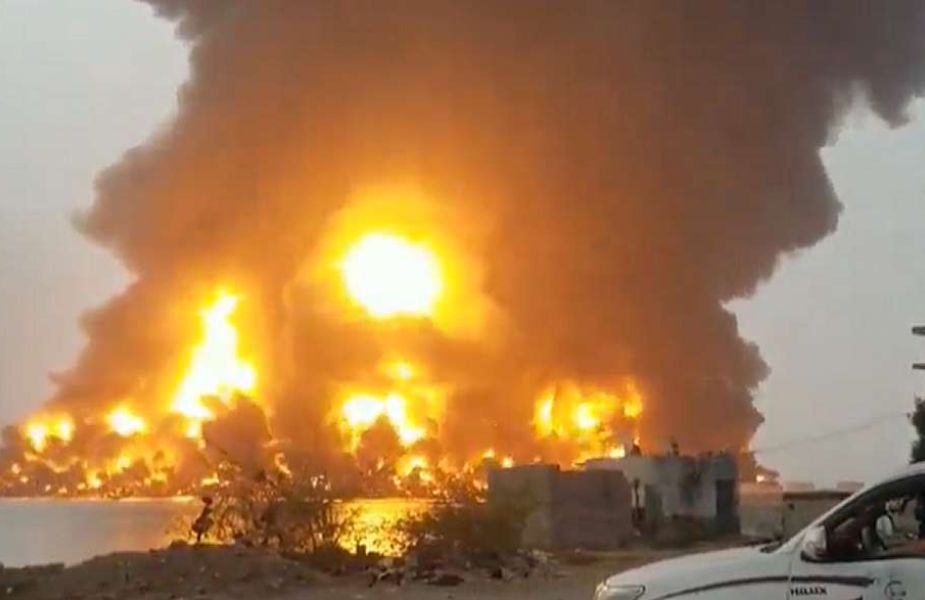Breaking News
Breaking News: Israeli Air Force Strikes Yemen After Drone Attack by Houthi Group on Israel.
Israel conducted airstrikes in Yemen on July 20, 2024, after the recent drone attack against Israel by Yemen's Houthi group. The airstrikes included a major attack on a fuel depot at Al-Hudaydah port, which is now engulfed in flames. This marks the first instance of Israeli military action in Yemen since October 7, 2023.
Follow Army Recognition on Google News at this link

The fuel depot at Al-Hudaydah, a key Yemeni port on the Red Sea coast burns intensely following Israeli airstrikes in Yemen on July 20, 2024, in response to a drone attack by Yemen's Houthi group. (Picture source: Video Social Network X)
The Israeli airstrikes were a direct response to a drone attack by Yemen's Houthi group against Israel on July 19, 2024. The Houthis launched a Samad-3 UAV that struck Tel Aviv, causing a large explosion, resulting in one fatality and ten injuries. Following this unprecedented attack, Israel swiftly targeted the Houthi's strategic assets in Yemen, aiming to impede their ability to launch further attacks.
The Samad, also spelled Sammad, is a series of long-range unmanned aerial vehicles (UAVs) of unidentified origin used predominantly in the Middle East. There are three variants in the Samad family: Samad-1, Samad-2 (also known as "UAV-X"), and Samad-3. These UAVs are primarily employed by the Houthi movement in the Yemeni civil war to target locations in Saudi Arabia, Israel, and the UAE due to their extended range capabilities.
The Samad-3 is an "extended-range" version featuring a conformal fuel tank mounted on the top of the drone. Its dimensions include an estimated wingspan of 4.5 meters and a length of 2.80 meters, similar to the Samad-2. According to the Houthis, the Samad-3 boasts a range of 1,500 kilometers and can carry an explosive payload. Other military sources, estimate the flight range to be around 1,800 kilometers. Despite its extended range, the Samad-3 is described as "inexpensive, small, slow, and clumsy," making it unlikely to strike targets with high accuracy.
The Israeli military has also begun investigating the failure of their air defense systems to intercept the drone, which was detected but not neutralized due to what appears to be human error.
Since the beginning of 2024, the defense situation between Israel and Yemen's Houthi group has significantly intensified. The Houthis have increased their missile and drone attacks on commercial shipping in the Red Sea and the Gulf of Aden, aiming to disrupt maritime traffic and target vessels with alleged links to Israel. These attacks have led to a notable decline in shipping through the Red Sea, forcing many vessels to take longer routes around Africa.
In response, Israel has bolstered its defenses, particularly around strategic locations like Eilat. The Israeli military has successfully intercepted several Houthi missiles using its Arrow air defense system. These actions underscore the ongoing threat posed by the Houthis, who continue to receive sophisticated weaponry from Iran.
Additionally, the United States and its allies have conducted multiple airstrikes on Houthi targets, including missile launch sites and undersea drones, to mitigate the threat to international shipping and support regional stability.
The conflict's impact extends beyond the military realm, as it also affects global maritime trade and regional security. The Yemen Houthis' actions have led to increased insurance costs and rerouted shipping lanes, further straining international economic activities.


























